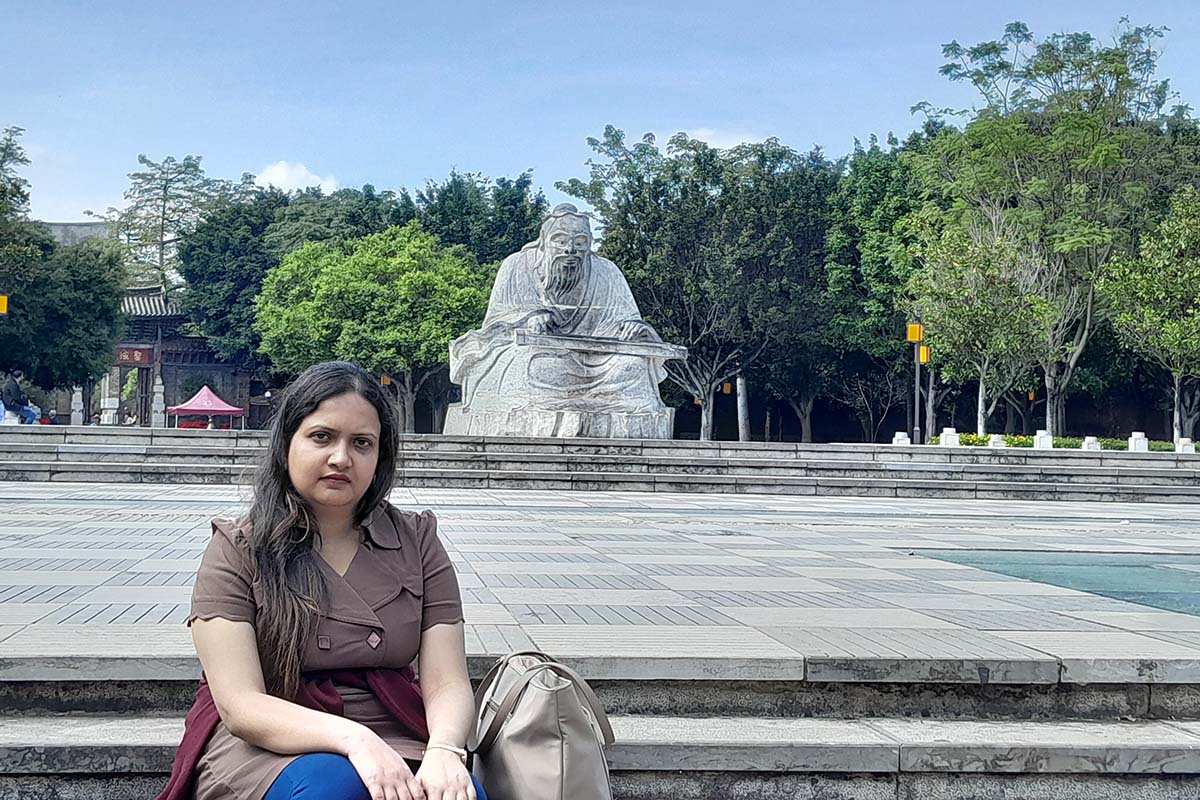Get-Rich-Quick Mentality Fuels Ritual Killings
August 9
Ritual-related killings are not new to Nigeria in recent times more of these incidents have been covered by the media. There were 185 ritual-related killings in Nigeria between January 2021 and January 2022 alone. Adedoyin Ajayi, a 25-year-old Commonwealth Correspondent from Nigeria believes that these ritual-related killings are due to the jostling for wealth, power and influence. He argues that because of Nigeria’s high unemployment rate, desperation has set in for discouraged youths, some of whom have turned to these violent practices.
The low regard placed on human life in Nigeria is heartbreaking, as the slaughtering of humans in ritual killings and the trade of human parts for nefarious purposes is so common that it is the daily news more and more in today’s Nigeria.
Nigerian youths have resorted to extremes. They have abandoned their morals and humanity to secure wealth and material possessions while others appear to be engaging in these practices for the sake of survival.
Earlier this year, 32-year-old Lagosian, Afeez Olalere, believed to be an internet fraudster, (commonly termed “yahoo-yahoo” in Nigeria) connived with his mother and a herbalist to poison his 21-year-old brother, after which parts of his brother’s remains were cut off to prepare a potion. The perpetrators claimed the portion would ensure Afeez’s “success” in carrying out his fraudulent acts.
Wealth has been over glamorised and young people are determined to get money by ‘hook or crook’. Very little thought is given to “the process of becoming,” which builds character and sustains success. Too many of our young people believe that the end justifies the means.
Unsurprisingly, we question who is responsible for the lack of morals. The popular dictum, “charity begins at home,” has been used by the Federal Government to lay the blame at the feet of households, faulting bad upbringing by parents. In turn, the masses have pointed an accusatory finger at leaders who they believe have helped to create a society devoid of morals through their corrupt acts.
The prevalence of ritual-related killings has been worsened by the incompetence of the authorities. Investigations into these killings are not thorough. There are delays in filing missing-person cases and there appears to be no concerted effort by relevant security and justice agencies to hand out stiff punishments which can serve as a deterrent against these acts.
Another contributory factor to these violent acts is the high levels of unemployment among young people. According to the Nigerian Bureau of Statistics, in the last quarter of 2020, the youth unemployment figure hovered around 50%. With an unemployment rate of about 33.3%, the second highest worldwide, and 40% of citizens earning wages below the poverty line of $1.9 per day, it is little wonder that some have turned to this type of violence. When citizens are poor, they do almost anything to break free from its uncomfortable shackles.
To address youth unemployment, the government should put strategies in place to ensure that we have a growing economy that rewards workers with equal opportunities and livable wages. Though we are very thankful for the youth empowerment schemes being set up across the country, much more is required, especially in light of the teeming unemployment figures.
Swift punishments should also be handed out to both perpetrators of these violent acts and their collaborators. The police should adopt a more proactive stance in their duty to protect lives and property.
Finally and perhaps most importantly, our leadership should shun corrupt practices and endeavour to change the subconscious orientation towards corruption in our culture. We must face the money-grabbing tendency in our society that is at the root of our moral decadence and extremely low regard for human life.
It is only when we begin to take these steps in Nigeria that we will lessen the incidences of ritual killings that now plague our country.
Photo Credit: Canva
About Adedoyin Ajayi: He studied Economics from Obafemi Awolowo University, Ile-Ife, Nigeria and graduated with first class honours. He likes reading and writing on issues pertaining to developing countries. He has published two academic papers on tourism and its interrelated factors in MINT countries (Mexico, Indonesia, Nigeria and Turkey). In addition to academic papers, he loves creative writing, and some of his literary works have been published in online African literary journals like Brittle Paper. He aims to further his education with a postgraduate degree in Development Economics.






